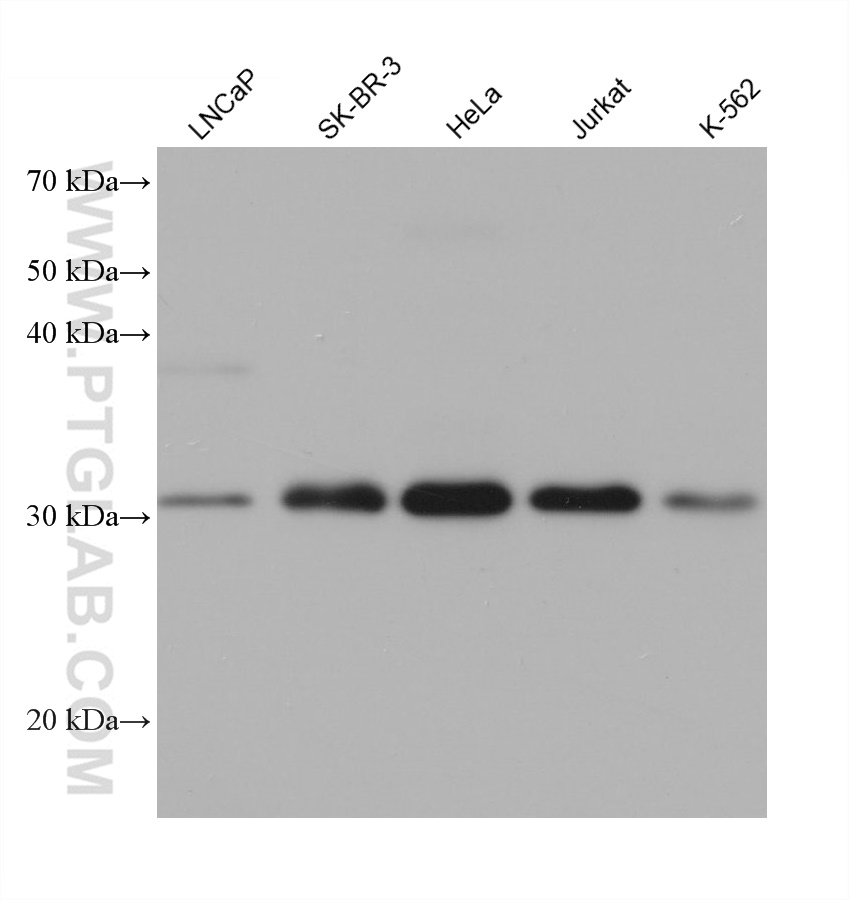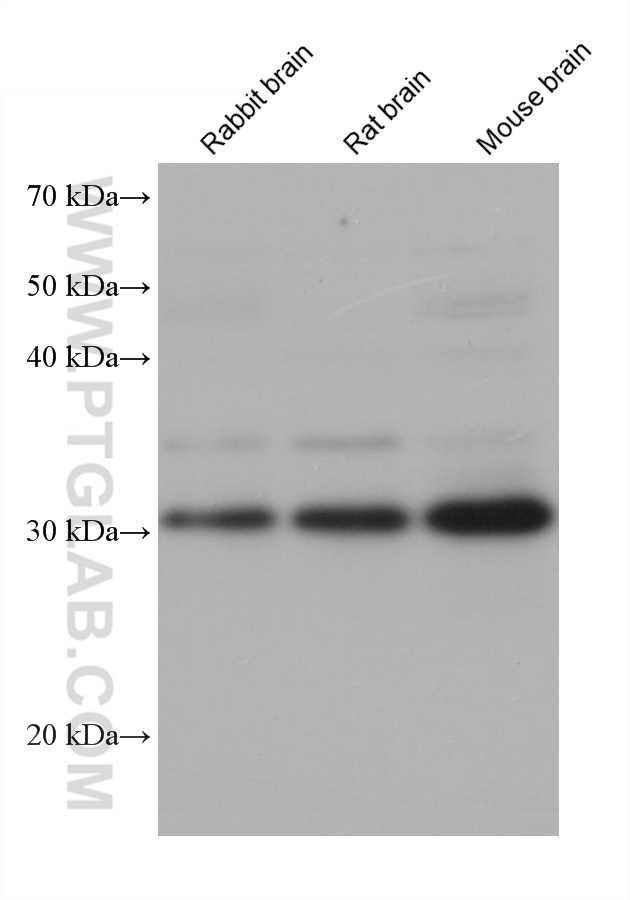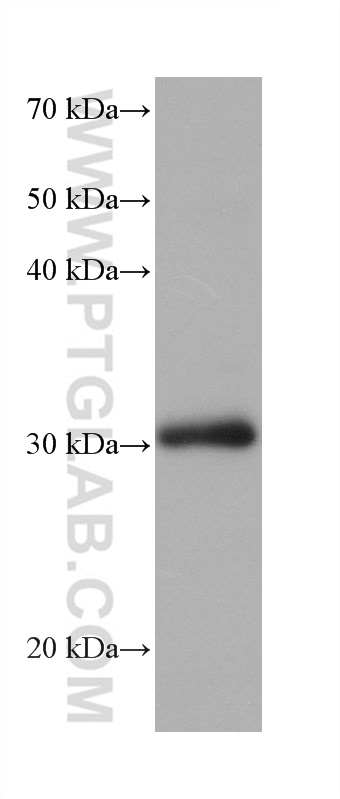验证数据展示
经过测试的应用
| Positive WB detected in | LNCaP cells, NCCIT cells, rabbit brain tissue, SK-BR-3 cells, HeLa cells, Jurkat cells, K-562 cells, rat brain tissue, mouse brain tissue |
推荐稀释比
| 应用 | 推荐稀释比 |
|---|---|
| Western Blot (WB) | WB : 1:5000-1:50000 |
| It is recommended that this reagent should be titrated in each testing system to obtain optimal results. | |
| Sample-dependent, Check data in validation data gallery. | |
产品信息
68615-1-Ig targets SPIN1 in WB, ELISA applications and shows reactivity with Human, mouse, rat, rabbit samples.
| 经测试应用 | WB, ELISA Application Description |
| 经测试反应性 | Human, mouse, rat, rabbit |
| 免疫原 | SPIN1 fusion protein Ag33686 种属同源性预测 |
| 宿主/亚型 | Mouse / IgG1 |
| 抗体类别 | Monoclonal |
| 产品类型 | Antibody |
| 全称 | spindlin 1 |
| 别名 | OCR, Ovarian cancer related protein, SPIN, SPIN1, spindlin 1 |
| 计算分子量 | 262 aa, 30 kDa |
| 观测分子量 | 30 kDa |
| GenBank蛋白编号 | BC013571 |
| 基因名称 | SPIN1 |
| Gene ID (NCBI) | 10927 |
| RRID | AB_3085309 |
| 偶联类型 | Unconjugated |
| 形式 | Liquid |
| 纯化方式 | Protein G purification |
| UNIPROT ID | Q9Y657 |
| 储存缓冲液 | PBS with 0.02% sodium azide and 50% glycerol , pH 7.3 |
| 储存条件 | Store at -20°C. Stable for one year after shipment. Aliquoting is unnecessary for -20oC storage. |
背景介绍
SPIN1 (Spindlin 1) is a histone methylation reader, which recognizes trimethylated histone H3 lysine 4 through the protein-protein interaction. SPIN1 was initially found in ovarian cancer via searching ovarian cancer-related genes . It is overexpressed in ovarian cancer tissue, which exhibits a high homology to mouse Spin (Spindlin) gene. Signaling pathways responsible for SPIN1 functions include PI3K/Akt, Wnt and RET that are highly relevant to tumorigenesis.(PMID: 34492335, PMID: 31790762)
实验方案
| Product Specific Protocols | |
|---|---|
| WB protocol for SPIN1 antibody 68615-1-Ig | Download protocol |
| Standard Protocols | |
|---|---|
| Click here to view our Standard Protocols |


